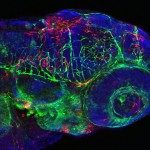Link to Pubmed [PMID] – 14681218
J. Biol. Chem. 2004 Mar;279(12):11489-94
Apoptotic cell death often requires caspases. Caspases are part of a family of related molecules including also paracaspases and metacaspases. Are molecules of this family generally involved in cell death? More specifically, do non-apoptotic caspase-independent types of cell death require paracaspases or metacaspases? Dictyostelium discoideum lends itself well to answering these questions because 1) it undergoes non-apoptotic developmental cell death of a vacuolar autophagic type and 2) it bears neither caspase nor metacaspase genes and apparently only one paracaspase gene. This only paracaspase gene can be inactivated by homologous recombination. Paracaspase-null clones were thus obtained in each of four distinct Dictyostelium strains. These clones were tested in two systems, developmental stalk cell death in vivo and vacuolar autophagic cell death in a monolayer system mimicking developmental cell death. Compared with parent cells, all of the paracaspase-null cells showed unaltered cell death in both test systems. In addition, paracaspase inactivation led to no alteration in development or interaction with a range of bacteria. Thus, in Dictyostelium, vacuolar programmed cell death in development and in a monolayer model in vitro would seem not to require paracaspase. To our knowledge, this is the first instance of developmental programmed cell death shown to be independent of any caspase, paracaspase or metacaspase. These results have implications as to the relationship in evolution between cell death and the caspase family.

